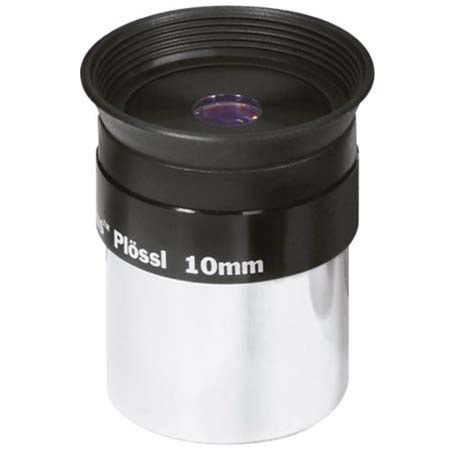
Picture does not represent the actual item
See what's in the box
Review Summary
Extend coverage on pre-owned products after the retailer warranty ends and protect photo & video gear from accidental damage with Adorama Protect.
If we can’t fix it, we’ll replace it at no additional cost.
Coverage for pre-owned gear begins after the retailer warranty ends, plus accidental damage protection for photo/video gear that starts on day one.
Enjoy your gear without fear. We have you covered!
When regular use of your product over time results in mechanical or electrical failure.
We will never charge you a deductible after the purchase of a plan.
Our claims process is simple & easy and our customer service team is happy to help.
Adorama Protect powered by Extend is available for purchase to customers in the United States. Not available for International and U.S. territories purchases. Plans on pre-owned items do not cover pre-existing damages.
Browse our FAQ
Plossl
10.0mm
1.25"
52.0-deg
6.5mm
Multi-coated
4
Yes
No
8.0mm
No
Yes
Yes
Aluminum
1.5 in. x 1.3 in.
2.28
Orion 1 year limited warranty
The Orion 10mm Sirius Plossl Eyepiece offering a wide 52° apparent field of view, it provides extremely sharp images of impressively high contrast. It's ideal for all types of telescopes: reflector, refractor and catadioptric. The Plossl 4-element design is renowned for its outstanding performance and has become the standard by which all other eyepieces are judged.
The Sirius Plossl optical system is fully coated with magnesium fluoride on every air-to-glass surface. Lens edges are blackened to reduce scattering of stray light and maximize contrast. The lenses are mounted in black-anodized aluminum housings with a 1.25"-diameter chrome-plated brass barrel for durability and precision fit. The barrel is internally threaded to accept standard filters.
The built-in rubber eyeguard enhances viewing by helping to block out ambient light and position the eye. This 10mm eyepiece is a great, moderately high power ocular for observing small planetary nebulas and globular star clusters, as well as for planetary probing when seeing conditions don't permit higher magnifications.